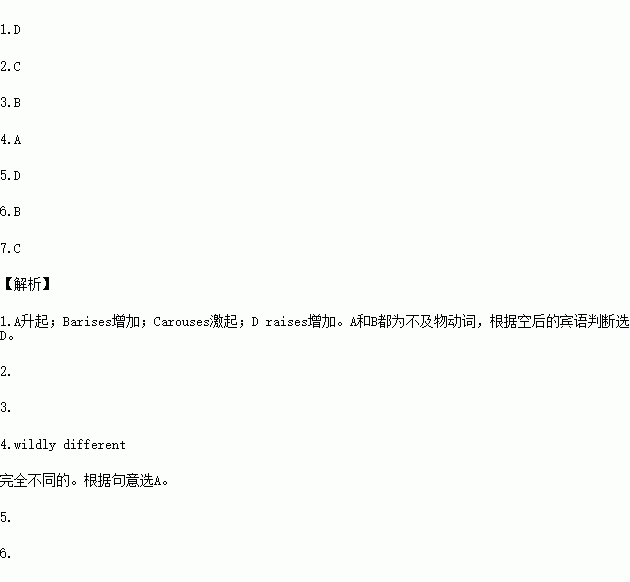题目内容
B
Some people think if you are happy, you are blind to reality. But when we research it, happiness actually every single business and educational outcome for the brain. Why do people have this social about happiness? Because we assumed you were average.
Many people think happiness is genetic. That’s only half the story. When we stop studying the average and begin positive outliers — people who are above average for a positive aspect like optimism or intelligence — a different picture appears. Our daily decisions and habits have a huge impact upon both our levels of happiness and success.
, happiness is a choice. It is a choice about where your single processor brain will devote its limited resources as you process the world. If you scan for the first, your brain really has no resources left over to see the things you are grateful for or the meaning embedded (嵌入) in your work. But if you scan it the other way round, you start to acquire an advantage.
1.A. rises B. arises C. arouses D. raises
2.A. faith B. concept C. misunderstanding D. tradition
3.A. discovering B. researching C. observing D. finding
4.A. wildly B. hardly C. mildly D. crazily
5.A. Fortunately B. Gradually C. Strangely D. Scientifically
6.A. positive B. negative C. active D. passive
7.A. annoying B. interesting C. amazing D. Embarrassing

